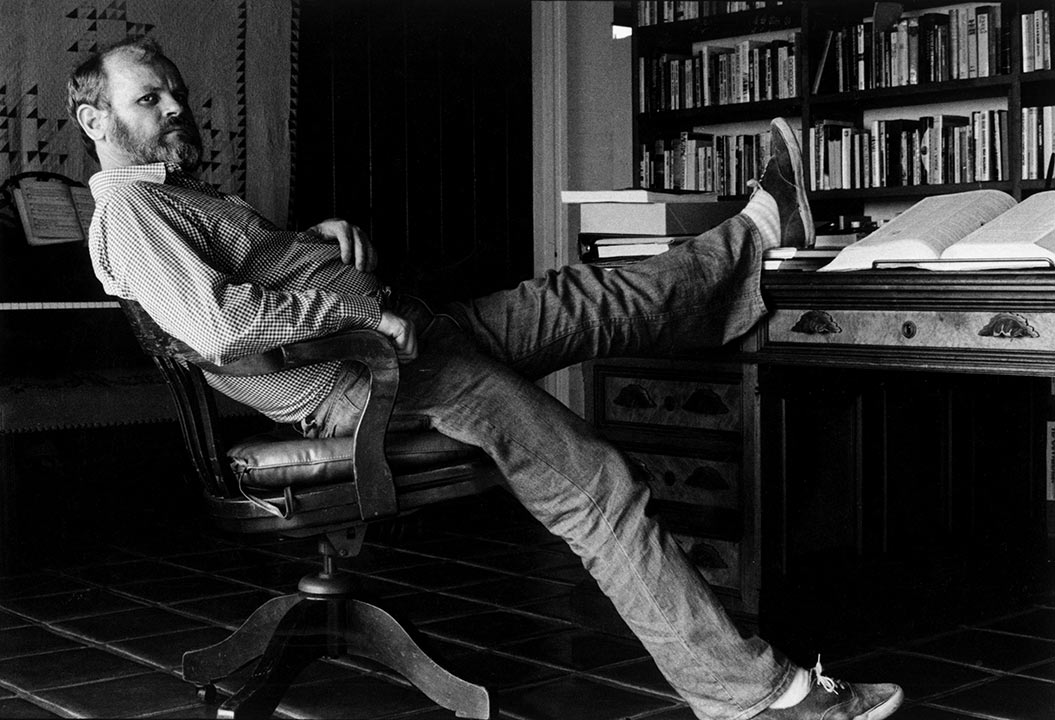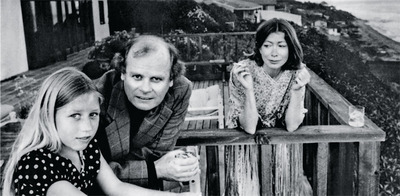Literature will be around as long as people are, but the particular literary world which George Plimpton and John Gregory Dunne inhabited has been disrupted, permanently. It wasn’t necessarily greater, but it was great. In a 1996 Paris Review interview, the former queried the latter about writing. The opening:
George Plimpton:
Your work is populated with the most extraordinary grotesqueries—nutty nuns, midgets, whores of the most breathtaking abilities and appetites. Do you know all these characters?
John Gregory Dunne:
Certainly I knew the nuns. You couldn’t go to a parochial school in the 1940s and not know them. They were like concentration-camp guards. They all seemed to have rulers and they hit you across the knuckles with them. The joke at St. Joseph’s Cathedral School in Hartford, Connecticut, where I grew up, was that the nuns would hit you until you bled and then hit you for bleeding. Having said that, I should also say they were great teachers. As a matter of fact, the best of my formal education came from the nuns at St. Joseph’s and from the monks at Portsmouth Priory, a Benedictine boarding school in Rhode Island where I spent my junior and senior years of high school. The nuns taught me basic reading, writing, and arithmetic; the monks taught me how to think, how to question, even to question Catholicism in order to better understand it. The nuns and the monks were far more valuable to me than my four years at Princeton. I’m not a practicing Catholic, but one thing you never lose from a Catholic education is a sense of sin and the conviction that the taint on the human condition is the natural order.
George Plimpton:
What about the whores and midgets?
John Gregory Dunne:
I suppose for that I would have to go to my informal education. I spent two years as an enlisted man in the army in Germany after the Korean War, and those two years were the most important learning experience I really ever had. I was just a tight-assed upper-middle-class kid, the son of a surgeon, and I had this sense of Ivy League entitlement, and all that was knocked out of me in the army. Princeton boys didn’t meet the white and black underclass that you meet as an enlisted draftee. It was a constituency of the dispossessed—high-school dropouts, petty criminals, rednecks, racists, gamblers, you name it—and I fit right in. I grew to hate the officer class that was my natural constituency. A Princeton classmate was an officer on my post and he told me I was to salute him and call him sir, as if I had to be reminded, and also that he would discourage any outward signs that we knew each other. I hate that son of a bitch to this day. I took care of him in Harp. Those two years in Germany gave me a subject I suppose I’ve been mining for the past God-knows-how-many years. It fit nicely with that Catholic sense of sin, the taint on the human condition. And it was in the army that I learned to appreciate whores. You didn’t meet many Vassar girls when you were serving in a gun battery on the Czech border and were in a constant state of alert in case the Red Army came rolling across the frontier. As for midgets, they’re part of that constituency of the dispossessed.
George Plimpton:
You once said you only had one character. Is that true?
John Gregory Dunne:
I’ve always thought a novelist only has one character and that is himself or herself. In my case, me.•


